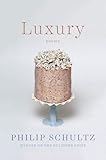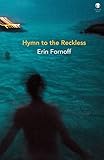Here are six notable books of poetry publishing in January.
Wild Is the Wind by Carl Phillips
Listen to Nina Simone’s stirring classic that inspired Phillips’s title, and then settle into this masterful collection. Phillips has found the sweet union between pacing and structure, and each poem in this book, like Simone’s recording, fully inhabits its space. The wideness and wisdom of his first person steps out in the middle of poems, as in “Brothers in Arms”: “I’ve always thought / gratitude’s the one correct response to having been made, / however painfully, to see this life more up close.” And “The happiest / people I know are those whose main strategy has / always been detachment.” This sense of control permeates the book, exemplified in poems like “Stray”: “Sometimes the thought that I’m doomed / to fail—that the body is—keeps me almost steady, if / steadiness is what a gift for a while brings—feathers, burst- / at-last pods of milkweed, October—before it all fades away.” To fade is to drift, disappear, and to lose ourselves—a notion, much like love, that requires some strange confidence and fear. A pleasure to have a poet armed with the architecture of history speaking to us, telling us: “to know utterly what you’ll never be, to understand in doing so / what you are, and say no to it, not to who you are, to say no to despair.” He does so by reminding us how to see, even something as simple and necessary as leaves: “Now they look suspended, like heroes / inside the myth heroes seem bent on making / from the myth of themselves; or like sunlight, in fog.”
 Indictus by Natalie Eilbert
Indictus by Natalie Eilbert
The first poem of Indictus is a preface and schema for the book: “I envision a world where the men are gone who pulled language out of my mouth to push themselves in.” The narrator explains “If I jump around in my details, it is because I have willfully refused details in writing,” and the warning makes sense: “Even in the highest form of truth, to access memory is to blunder its event.” Eilbert’s narrators respond to trauma with fever and force, and we’re plunged into these dark moments in stanzas that stray across the page, little blinks of memory that have pushed their way out. The narrative style here is often mythic—Eilbert’s recursive songs turn words like “hole” into struggles—making Indictus feel like some discovered, aged text of permanence. There often is a freeing sense of vulnerability here; on one page, after a pointed childhood memory, the narrator skips a line like taking a breath, and writes: “What do I want to tell you?” What is told: “A poem is a hole in how it is dug up,” she writes, “the soil purged, the soiled purge—movement likened / to a net uncatching.” Indictus is, among other things, a paean to poetic power: “My obsession with words is a kind of envy, / that they affect meaning as their former usage / is erased, retooled.” Eilbert’s book is an act of reclaiming, revising, transcending—while never forgetting.
 Luxury by Philip Schultz
Luxury by Philip Schultz
“As I get older more seems to be needed.” Luxury begins with the anxiety that accompanies awareness. The narrators of the first poems in the collection are frozen, watching the world. An aging man in his home, “worrying about a future my sons / will help make.” A man sitting “next to the toilet” on packed transit, “thinking about Pythagoras, / who believed our souls ended up inside / the bodies of animals selected as rewards / and punishments.” A narrator witness to small-town bickering in line at the grocery store. These are poems of dizzying suburban silence: “I like to stand at my window, / looking for a TV’s futile flickering, / always surprised to see / instead, / the quaint, porous face / of my reflection, / immersed in darkness, / its one abundance.” “Luxury,” the long title poem that encompasses the final quarter of that book, looks deeper into that darkness. It ventures forward and backward—in the bounding way that grief does—and the narrator considers how “the first / and only life I ever managed to save / was my own.” Melancholic without ever become maudlin, Schultz’s new book is a snapshot of our malaise “one luminous, lost imagination at a time.”
 Take Me with You by Andrea Gibson
Take Me with You by Andrea Gibson
Gibson’s pithy love poems are a nice match for the book’s pocket size, and Sarah J. Coleman’s line drawings help the eye linger on the page. The final two sections of the book, “On the World” and “On Becoming,” are idealistic calls for unity—that we might compromise enough to listen to each other, but that we don’t have to compromise our souls. The untitled poems make the pages bleed into each other; one page is an affirmation to “write the poem” in the midst of grief, and the opposing page feels right: “I am so desperate to learn / how people reach / each other, / I can’t stop running / around cursing this city / for the day they started / burying the telephone wires / underground.” “You should never trust a ship / that won’t let you get off”—Gibson’s wisdom sails in lines that take curious routes. They might court cliché in some of their love poems, but that makes their later dances with words all the more surprising and powerful “I know a thousand / things louder than / a soldier’s gun. // I know the / heartbeat of his / mother.” A former college basketball player (they played for St. Joseph College’s Lady Monks), they first came out at 20 to their roommate: “I gotta tell you something. I / finally understand God.”
 Hymn to the Reckless by Erin Fornoff
Hymn to the Reckless by Erin Fornoff
At a gas station: “slicks of oil tie-dye the puddles / in the concrete.” They “reflect the sun, / turn it wild, hold it in the cracked dips of the ground.” In the forest: “Look at a beech long enough, you want / to run your hands up its trunk like a lover.” Making moonshine: “We wait for a sunny day and begin early, / haul deep pots and propane up the hill / back where the rain-rubbed mountains meet.” Fornoff looks at the world—animate and inanimate—as pulsing, peculiar, worthy of attention. “I manufactured a kinship with the sea,” she writes in one poem: “It flirted. It tweaked my ankles.” Later, when “I fell over the rocks” into the sea, the water “pulled / into the moaning boil, it ignored me, / pounded my sinuses, churned.” Her vision is tempered by realism. “Politeness as identity is taxing.” Hymn to the Reckless moves between the poet’s native North Carolina and her home in Ireland, where she says “the light is different here.” It is from that distance that she looks at her home and wonders, with the weight of elegy, “If the future’s something we have to brace / ourselves against, can we find a space in the dark, / and life courage from the mess?”
 The Cataracts by Raymond McDaniel
The Cataracts by Raymond McDaniel
Often McDaniel’s narratives unfold from a word’s definition. Decimate, light, haven: “Is the name for the place of safety or refuge. // Though refuge from what is unclear, unspecified, // it matters in that the nature of a haven depends // on what you are fleeing from.” And on his lines go, spinning definition out into discovery. This is a book of blurred vision, a theme imbued into the spaces between the lines, into the memories of the narrator—memories that feel like a game: “Do you know where you are, / if you know that wherever you are, / you are lost?” There are many mirrors in this book, light refracted, vision strained. In one long poem, the narrator speaks of his father’s cataracts: “because we were all broken by the cost of his having been broken.” His pain is a weight upon them, and years later, after his death, the narrator dreams of his father: “he said if you want to stare at the sun // and not go blind you look not at its light // but what it illuminates the world the moon // never the thing itself and always its reflection.” There’s a heavy sadness to this book—a strangely calming one—with a hint of resignation: “I want nothing, / not even to be free of desire.”










